Resources Listing Page VAW Page
Resources Listing Page VAW Page
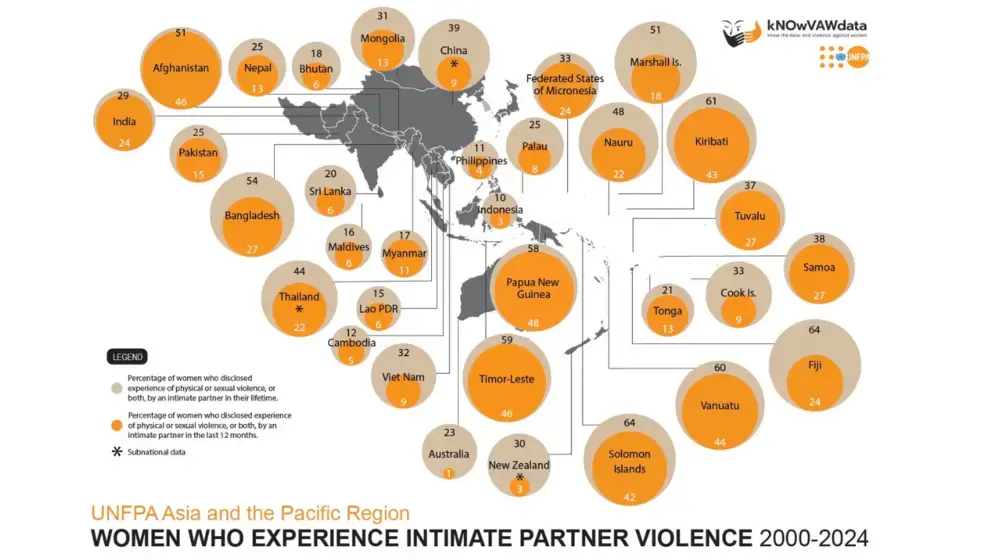
10 March 2025
Publication
Violence Against Women - Regional Snapshot (2024) - kNOwVAWdata
This 2024 snapshot is the eighth annual edition of this publication. The data reflect the most recent data collected with, in most cases, the WHO methodology, the DHS or MICS domestic violence module. The data presented is the most comparable available, but should not be directly compared without considering several important factors, as explained in the snapshot. The snapshot includes data from countries in Asia and the Pacific where UNFPA has an operational presence, as well as Australia and New Zealand, reflecting a broader regional context and partnerships in addressing violence against women and girls.
Read story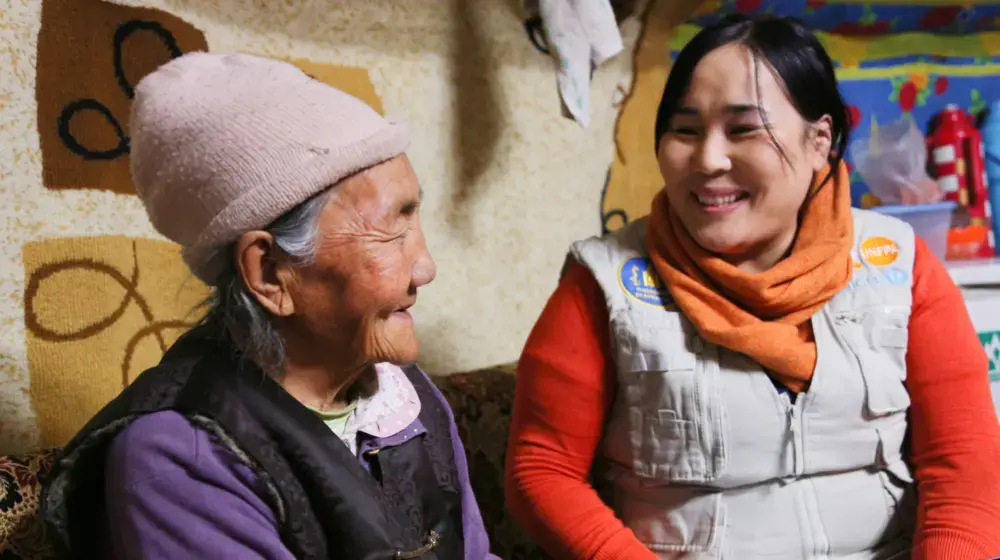
18 December 2024
Publication
New evidence from the 2017 National Study on Gender-based Violence in Mongolia
This publication shows the findings of the secondary analysis of gender-based violence (GBV) data, which builds upon the first-ever National Study on Gender-based Violence in Mongolia conducted by the National Statistics Office (NSO) in 2017 with technical assistance from UNFPA. This follow-up analysis, initiated in response to the recommendations of the 2017 study report, seeks to deepen our understanding of factors associated with intimate partner violence in Mongolia.
Read story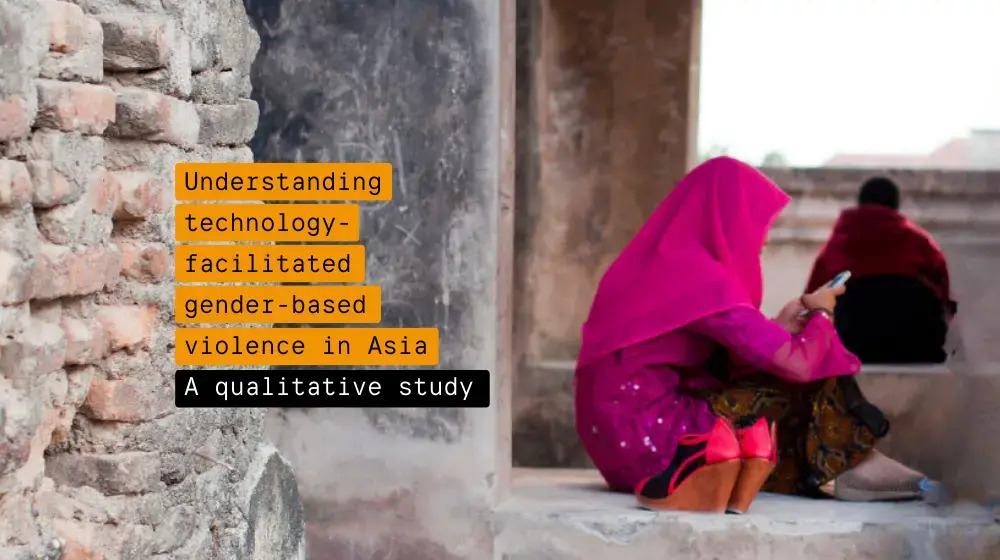
14 October 2024
Publication
Understanding technology-facilitated gender-based violence in Asia: A qualitative study
Technology-facilitated gender-based violence is an emerging form of gender-based violence that is rapidly growing but is not well understood. This report starts to redress this gap and presents findings from a regional study with diverse stakeholders in Asia.
Read story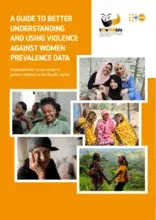
31 October 2023
Resource
A Guide to Better Understanding and Using Violence Against Women Prevalence Data
This guide presents an overview of the basic concepts and principles of violence against women (VAW) prevalence data.
Read story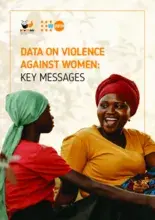
31 October 2023
Resource
Data on Violence Against Women: Key Messages
This document provides an overview of key concepts on violence against women data that can be applied globally. It is intended to serve as a complementary resource to a longer technical report entitled "A Guide to Better Understanding and Using Violence Against Women Prevalence Data."
Read story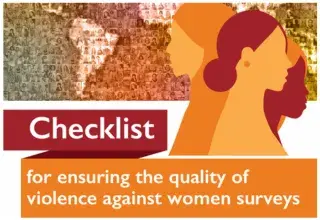
06 December 2023
Resource
Checklist for ensuring the quality of violence against women surveys
This checklist is designed to help national statistics offices and other national research and data institutions and research teams to think through the steps needed to produce high-quality survey data on intimate partner violence — from the planning stages through to analysis, report write-up and dissemination of accurately interpreted findings.
Read story
24 November 2023
Publication
Conducting a national study on the prevalence of violence against women: Lessons learned from Mongolia
This document aims to help other program and project coordinators and researchers undertaking violence against women prevalence surveys to anticipate and address some of the challenges they may face. It contains lessons learned gathered after completing the Mongolia study and launching the results. Key people involved have shared their experiences establishing partnerships with stakeholders, recruiting and managing an effective team of interviewers, preparing for and conducting the fieldwork, and translating the results into action.
Read story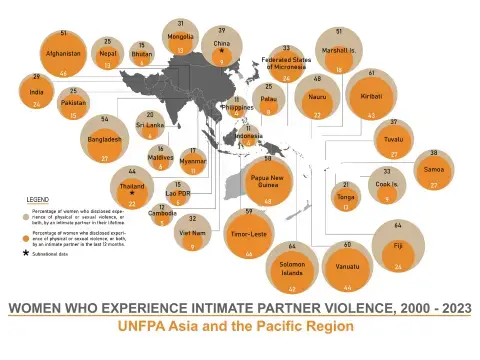
15 August 2023
Fact Sheet
Violence Against Women - Regional Snapshot (2023) - kNOwVAWdata
This 2023 snapshot is the seventh annual edition of this publication. The data reflect the most recent data collected with either the WHO methodology, the DHS-DV (domestic violence) module, or the UNECE VAW module. The data in this publication are sourced from publicly available survey reports, as of August 2023.
Read story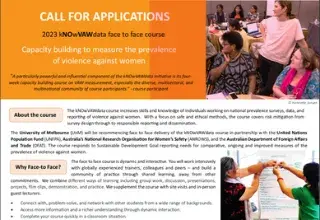
23 May 2023
Resource
2023 kNOwVAWdata face to face course: Capacity building to measure the prevalence of violence against women
The kNOwVAWdata course increases skills and knowledge of individuals working on national prevalence surveys, data, and reporting of violence against women. With a focus on safe and ethical methods, the course covers risk mitigation from survey design through to responsible reporting and dissemination. The University of Melbourne (UoM) will be recommencing face to face delivery of the kNOwVAWdata course in partnership with the United Nations Population Fund (UNFPA), Australia’s National Research Organisation for Women’s Safety (ANROWS), and the Australian Department of Foreign Affairs and Trade (DFAT). The course responds to Sustainable Development Goal reporting needs for comparative, ongoing and improved measures of the prevalence of violence against women.
Read story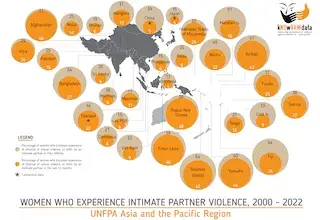
31 August 2022
Fact Sheet
Violence Against Women - Regional Snapshot (2022) - kNOwVAWdata
2022 Asia-Pacific snapshot on the prevalence of violence against women
Read story